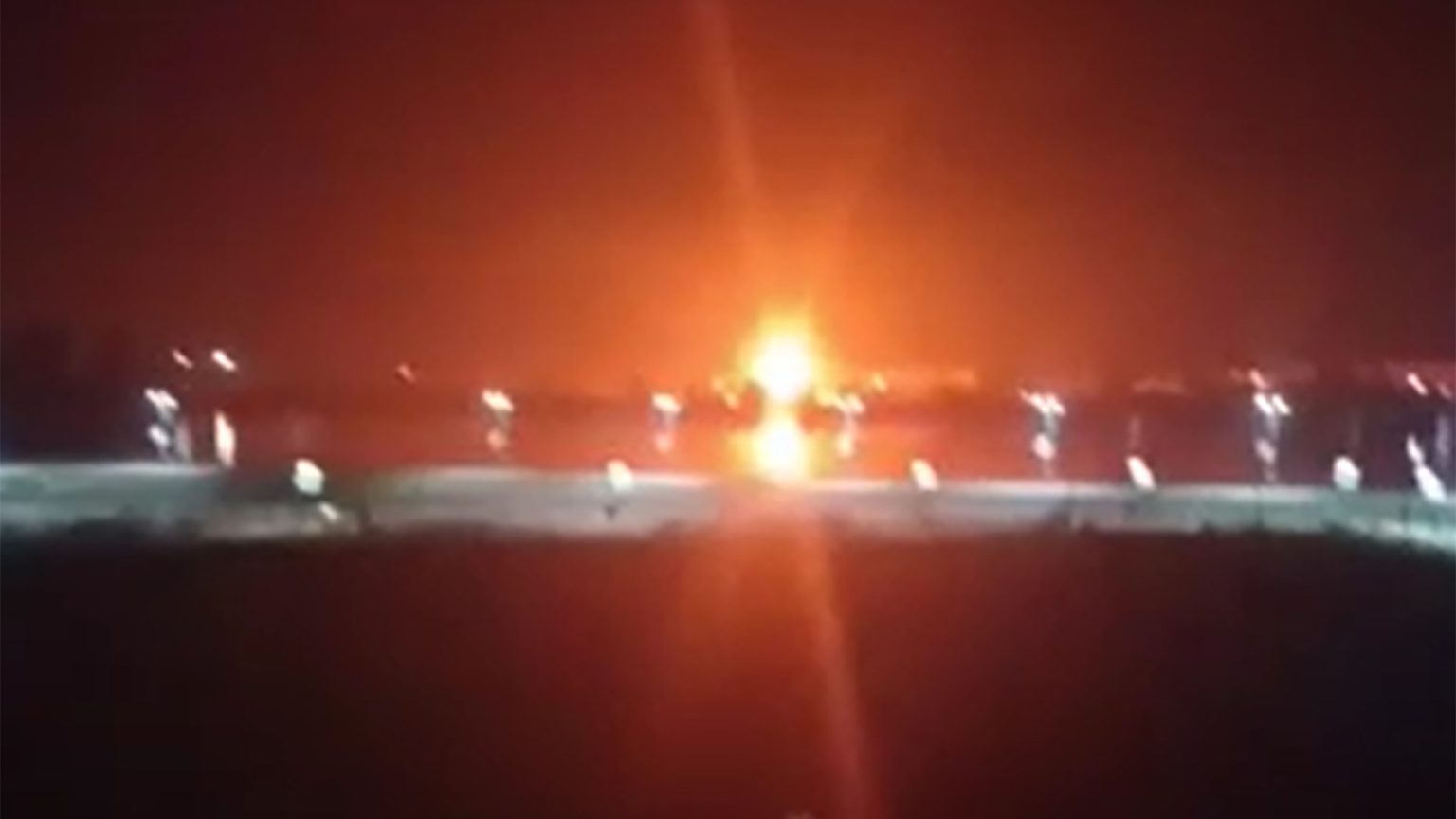A suspected Russian drone attack targeted Ukrainian port facilities on the Danube River, raising concerns over a potential violation of NATO airspace as debris from the explosion reportedly landed on Romanian territory. The incident, occurring in the early hours of the morning, prompted a swift response from Romanian authorities, who scrambled two F-16 fighter jets to monitor the situation. While the Romanian Ministry of National Defence initially denied any breach of its airspace, subsequent reports and investigations suggest that a drone may have indeed crashed within Romanian territory near Tulcea county. This incident represents a significant escalation in the ongoing conflict between Russia and Ukraine, bringing the war dangerously close to NATO’s borders and raising the spectre of potential alliance involvement. The Romanian government strongly condemned the attacks, characterizing them as unjustified and a flagrant violation of international law.
The drone attack, believed to be part of a broader Russian offensive targeting Ukrainian grain infrastructure along the Danube River, underscores Moscow’s strategy of disrupting Ukraine’s ability to export its agricultural products. The Danube River has become a crucial export route for Ukrainian grain following Russia’s withdrawal from the Black Sea Grain Initiative, a UN-brokered agreement that ensured safe passage for grain shipments. By attacking these vital export routes, Russia aims to cripple Ukraine’s economy and exert pressure on global food security. The proximity of the attack to NATO territory highlights the risks associated with Russia’s military operations and the potential for unintended consequences that could draw the alliance into direct confrontation.
The incident triggered an immediate response from Romanian authorities, who scrambled two F-16 fighter jets from the 86th Air Base in Borcea. The jets were tasked with monitoring the airspace and assessing the extent of the incursion. While the Romanian Ministry of National Defence initially denied any violation of its airspace, reports from local officials and evidence gathered at the scene suggest that debris from the exploding drone may have landed on Romanian territory. This discrepancy in reporting underscores the complexities of assessing such incidents in real-time and the need for thorough investigations to determine the precise sequence of events. The incident also highlights the challenges faced by NATO members in responding to potential threats emanating from the conflict in Ukraine.
The Romanian government issued a strong condemnation of the attack, denouncing Russia’s actions as a blatant disregard for international law and a threat to regional stability. The Ministry of National Defence expressed solidarity with Ukraine and reiterated its commitment to supporting the country’s sovereignty and territorial integrity. The incident underscores the heightened tensions along NATO’s eastern flank and the potential for the conflict in Ukraine to spill over into neighboring countries. Romania, as a NATO member, benefits from the collective security guarantees enshrined in Article 5 of the North Atlantic Treaty, which stipulates that an attack on one member is considered an attack on all. This incident raises questions about the threshold for invoking Article 5 and the potential implications for NATO’s response to future incursions.
The attack on Ukrainian port facilities on the Danube River represents a dangerous escalation in the ongoing conflict, bringing the war perilously close to NATO territory. The incident underscores the risks associated with Russia’s military operations and the potential for unintended consequences that could draw the alliance into direct confrontation. The Romanian government’s strong condemnation of the attack, coupled with its swift military response, highlights the heightened state of alert along NATO’s eastern flank and the determination of member states to defend their territory and uphold the principles of collective security. The incident also serves as a reminder of the importance of maintaining open lines of communication and de-escalation mechanisms to prevent further escalation and ensure regional stability.
The incident also underscores the broader implications of the conflict in Ukraine for global security and the international order. Russia’s actions have been widely condemned as a violation of international law and a blatant disregard for the sovereignty of an independent nation. The conflict has also highlighted the fragility of international agreements and the challenges of maintaining peace and security in a multipolar world. The incident near the Romanian border serves as a stark reminder of the potential for regional conflicts to escalate and the need for a concerted international effort to resolve the crisis in Ukraine peacefully. The ongoing conflict also highlights the importance of strengthening international institutions and mechanisms for conflict resolution and promoting adherence to international law.











